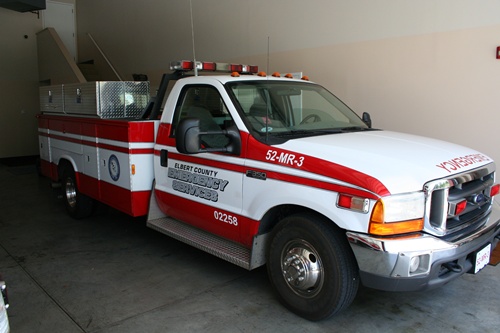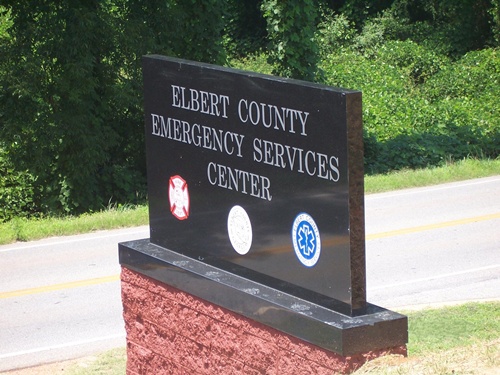The Mission of Elbert County Emergency Services is to quickly, accurately, and effectively receive emergency calls and respond appropriate agencies to emergency situations in Elbert County.
|

| |
Prepare Now For Winter Storms
Weather forecasts posting winter storm watches or warnings can send people scurrying for groceries and fuel for vehicles and heaters. "People who get caught unprepared by a winter snow or ice storm may find themselves in a serious situation which could be fatal," said Elbert County Emergency Management Agency Director Chuck Almond.
Winter storms are deceptive killers because most deaths are indirectly related to the storm. People die in traffic accidents on icy roads , from heart attacks while shoveling snow or pushing cars, from hypothermia after prolonged exposure to cold, and in house fires while burning alternative fuels for heat or light during power outages.
As the recent snow and ice storm demonstrated, preparation is vital to safeguarding your family and home. The January storm struck more than 70 percent of the state, leaving many local roads nearly impassable for several days.
To prevent the harmful effect of a winter storm, create a family disaster plan and do the following:
-
Have additional fuel supplies on hand. Fuel carriers, such as propane and fuel oil jobbers, may not reach you for days after a severe winter storm, so have heating fuel available ahead of time.
-
Have and emergency heat source. When used properly, a fireplace with plenty of wood, a wood-burning stove, or a space heater are good alternatives to your usual heating system. To avoid fire or suffocation, follow the manufacturer's instructions and make sure the room is properly ventilated when using alternate heating sources.
-
Close of unneeded rooms. Stuff towels or rags in cracks under doors. Cover windows at night.
-
Winterize your vehicle. Also, keep your vehicle's fuel tank at least half full to avoid ice in the tank and fuel lines. Your auto survival kit should include waterproof matches to melt snow for drinking water, a sack of sand or cat litter for traction, shovel, windshield scraper and brush, tool kit, tow rope, booster cables, compass, and road maps. It should also include blankets, a first aid kit, dry clothing, a flashlight with extra batteries, and a brightly colored cloth to tie to the antenna.
-
Conserve your energy. Eat food which provides the body with energy for producing its own heat. Replenish your body with fluids to prevent dehydration. Do not eat snow; it will lower your body temperature. Melt it first.
-
Limit travel to emergencies only. However, if it becomes absolutely necessary for you to travel, you should:
Dress for success. Always make sure you dress for the weather outside, not the controlled climate inside your vehicle. Wear several layers of loose-fitting clothing, covered by a topcoat that will keep you warm and dry. Layers can be removed to avoid perspiration and subsequent chill. Always cover your head and cover your mouth to protect your lungs.
Try not to travel alone. If you must; however, let someone know your timetable as well as primary and alternate routes.
Protect your home. If you are going to be away from your home, takes steps to protect it. Set the furnace to provide minimum heat. Also, if you are going to be away for an extended period, turn off the water at the water main and drain all water from the supply lines. Without such precautions, water pipes could freeze or crack. When the pipes thaw, water will flood your house.
Stay ahead of winter storms by listening to National Oceanic and Atmospheric (NOAA) Weather Radio, commercial radio, or television for:
Winter Storm Watch: Severe winter conditions, such as heavy snow and/or ice, are possible within the next day or two. Prepare now!
Winter Storm Warning: Severe winter conditions have begun or are about to begin in your area. Stay indoors!
Blizzard Warning: Snow and strong winds will combine to produce a blinding snow (near zero visibility), deep drifts, and life-threatening wind chill. Seek shelter immediately!
Winter Weather Advisory: Winter weather conditions are expected to cause significant inconveniences and may be hazardous. If caution i exercised, these situations should not become life threatening. The greatest hazard is often to motorists.
Frost/Freeze Warning: Below freezing temperatures are expected and may cause significant damage to plants, cro
.
|
| |
|
|


